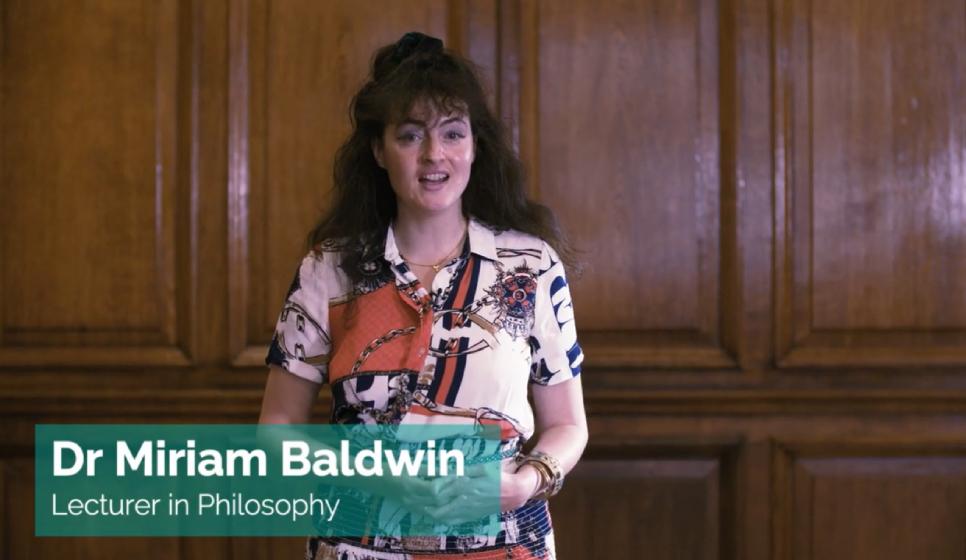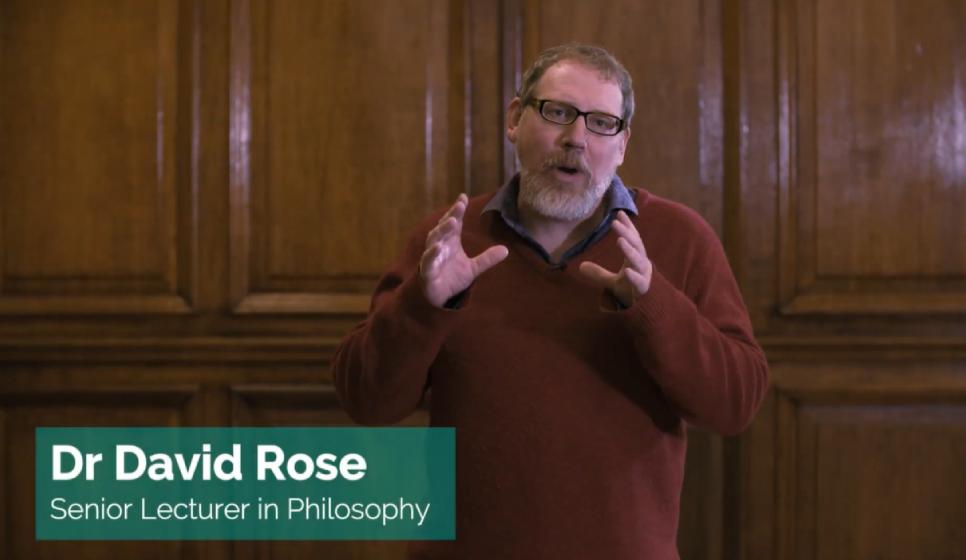Our curriculum
Explore thinkers such as Plato, Descartes, Kant, Hegel, Kierkegaard, Nietzsche, Heidegger, de Beauvoir, Sartre, Kristeva, Derrida and Foucault.
What you’ll learn
On our degree you'll:
- specialise in modern European philosophy from Descartes onwards. This includes German, French and Italian philosophy
- apply the philosophy you learn to topics you’re interested in, making it relevant to your world
- read and understand the work of historical philosophers
- come to understand the history of European philosophy
- engage with major issues of philosophical debate and research

Programme structure
The degree is made up of three types of modules:
- compulsory modules
- project modules
- optional modules
Compulsory modules are courses that everyone on the degree will study. These begin at the start of European Philosophy with the pre-Socratics and Plato. By the time you get to Stage 3, you’ll find yourself encountering more contemporary philosophers.
The project modules are a unique aspect of our degree. At each stage, you’ll complete an individual project based on a topic of your choice. You’ll then apply the philosophy you have learned from the degree to your chosen topic.
You can choose optional modules from Philosophy or from other subject areas in the University.
Programme content
How you’ll learn
Learning on the Philosophy degree is an active process. It focuses on your own reading and inspired by lectures and discussion in seminars and tutorials.
The majority of teaching in Philosophy at Newcastle University is done in person. You'll have weekly lectures on notable philosophers and key debates from an expert in the field. You'll also have weekly seminars where you’ll discuss the lecture content and the week’s reading.
These sessions provide an important opportunity to ask the seminar leader any questions you may have about the week’s material. They allow you to meet other people on your course too. This allows for debating and exchanging different ideas and interpretations. In addition to this, you'll have weekly project meetings. Here you'll discuss your progress on your individual project, and your project leader will offer guidance.
Canvas
Philosophy utilises the online learning platform called Canvas. Through Canvas, you'll receive selected readings and other learning resources. They are useful to prepare you for the weekly lectures and seminars. As a Philosophy student, you'll spend a lot of time reading these materials. Independent reading is an essential part of the learning process.
Sample lectures
Watch these videos to get a sense of what teaching is like on a Philosophy degree:

.jpg)


